第201章
Poor Sack!He is very ill,indeed.We parted as never to meet again.It has quite broke me down.'This pathetic narrative was strangely diversified with the grave and earnest defence of a man's having married his maid.I could not but feel it as in some degree ludicrous.
In the morning of Tuesday,June 15,while we sat at Dr.Adams's,we talked of a printed letter from the Reverend Herbert Croft,to a young gentleman who had been his pupil,in which he advised him to read to the end of whatever books he should begin to read.
JOHNSON.'This is surely a strange advice;you may as well resolve that whatever men you happen to get acquainted with,you are to keep to them for life.A book may be good for nothing;or there may be only one thing in it worth knowing;are we to read it all through?These Voyages,(pointing to the three large volumes of Voyages to the South Sea,which were just come out)WHO will read them through?A man had better work his way before the mast,than read them through;they will be eaten by rats and mice,before they are read through.There can be little entertainment in such books;one set of Savages is like another.'BOSWELL.'I do not think the people of Otaheite can be reckoned Savages.'JOHNSON.'Don't cant in defence of Savages.'BOSWELL.'They have the art of navigation.'JOHNSON.'A dog or a cat can swim.'BOSWELL.'They carve very ingeniously.'JOHNSON.'A cat can scratch,and a child with a nail can scratch.'I perceived this was none of the mollia tempora fandi;so desisted.
Upon his mentioning that when he came to College he wrote his first exercise twice over;but never did so afterwards;MISS ADAMS.'Isuppose,Sir,you could not make them better?'JOHNSON.'Yes,Madam,to be sure,I could make them better.Thought is better than no thought.'MISS ADAMS.'Do you think,Sir,you could make your Ramblers better?'JOHNSON.'Certainly I could.'BOSWELL.
'I'll lay a bet,Sir,you cannot.'JOHNSON.'But I will,Sir,if I choose.I shall make the best of them you shall pick out,better.'BOSWELL.'But you may add to them.I will not allow of that.'JOHNSON.'Nay,Sir,there are three ways of making them better;--putting out,--adding,--or correcting.'
During our visit at Oxford,the following conversation passed between him and me on the subject of my trying my fortune at the English bar:Having asked whether a very extensive acquaintance in London,which was very valuable,and of great advantage to a man at large,might not be prejudicial to a lawyer,by preventing him from giving sufficient attention to his business;--JOHNSON.'Sir,you will attend to business,as business lays hold of you.When not actually employed,you may see your friends as much as you do now.
You may dine at a Club every day,and sup with one of the members every night;and you may be as much at publick places as one who has seen them all would wish to be.But you must take care to attend constantly in Westminster-Hall;both to mind your business,as it is almost all learnt there,(for nobody reads now;)and to shew that you want to have business.And you must not be too often seen at publick places,that competitors may not have it to say,"He is always at the Playhouse or at Ranelagh,and never to be found at his chambers."And,Sir,there must be a kind of solemnity in the manner of a professional man.I have nothing particular to say to you on the subject.All this I should say to any one;I should have said it to Lord Thurlow twenty years ago.'
On Wednesday,June 19,Dr.Johnson and I returned to London;he was not well to-day,and said very little,employing himself chiefly in reading Euripides.He expressed some displeasure at me,for not observing sufficiently the various objects upon the road.'If Ihad your eyes,Sir,(said he,)I should count the passengers.'It was wonderful how accurate his observation of visual objects was,notwithstanding his imperfect eyesight,owing to a habit of attention.That he was much satisfied with the respect paid to him at Dr.Adams's is thus attested by himself:'I returned last night from Oxford,after a fortnight's abode with Dr.Adams,who treated me as well as I could expect or wish;and he that contents a sick man,a man whom it is impossible to please,has surely done his part well.'
After his return to London from this excursion,I saw him frequently,but have few memorandums:I shall therefore here insert some particulars which I collected at various times.
It having been mentioned to Dr.Johnson that a gentleman who had a son whom he imagined to have an extreme degree of timidity,resolved to send him to a publick school,that he might acquire confidence;--'Sir,(said Johnson,)this is a preposterous expedient for removing his infirmity;such a disposition should be cultivated in the shade.Placing him at a publick school is forcing an owl upon day.'
Speaking of a gentleman whose house was much frequented by low company;'Rags,Sir,(said he,)will always make their appearance where they have a right to do it.'
Of the same gentleman's mode of living,he said,'Sir,the servants,instead of doing what they are bid,stand round the table in idle clusters,gaping upon the guests;and seem as unfit to attend a company,as to steer a man of war.'
A dull country magistrate gave Johnson a long tedious account of his exercising his criminal jurisdiction,the result of which was his having sentenced four convicts to transportation.Johnson,in an agony of impatience to get rid of such a companion,exclaimed,'I heartily wish,Sir,that I were a fifth.'
Johnson was present when a tragedy was read,in which there occurred this line:--'Who rules o'er freemen should himself be free.'
The company having admired it much,'I cannot agree with you (said Johnson).It might as well be said,--'Who drives fat oxen should himself be fat.'